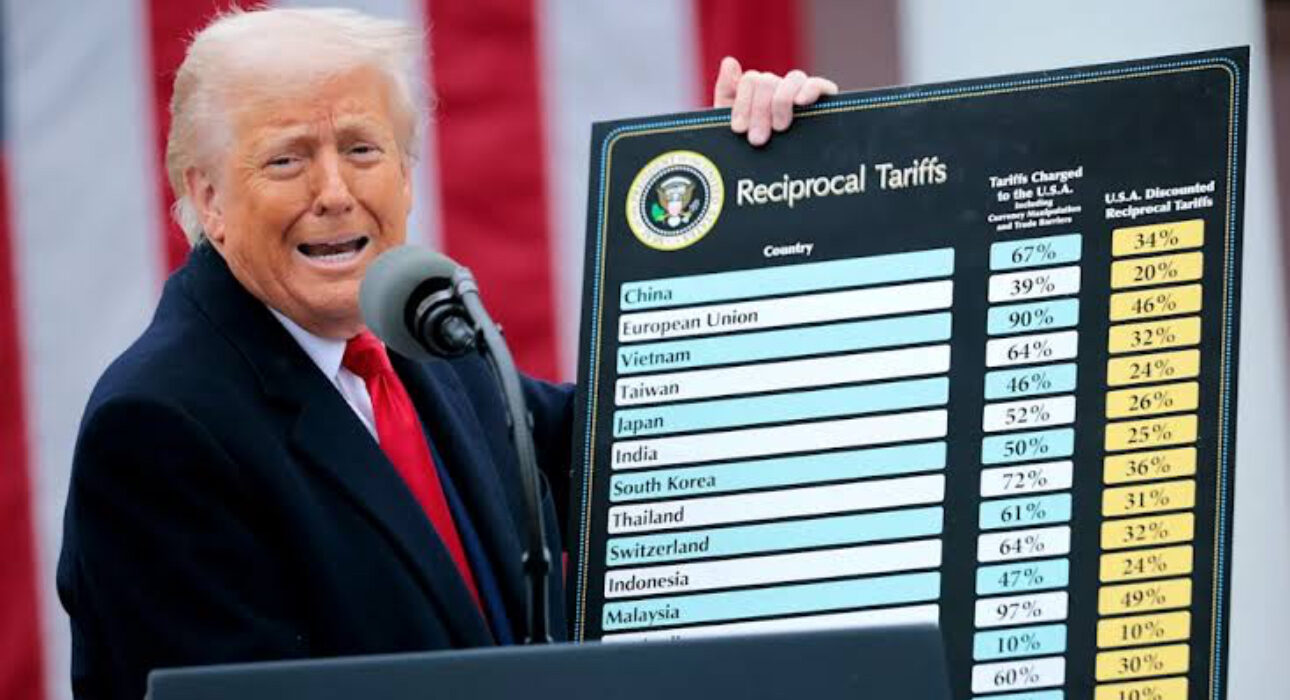With 14% Duty, Trump’s Tariff Puts Nigerian Exports on Brinks

In a move that could break world trade patterns, the U.S. President, Donald Trump, has put the exports of Nigeria to the United States under a 14% duty, which could further sour relations between the two countries and hurt Nigerian industries heavily reliant on trade with the U.S.
The tariff is also part of the bigger plan by the Trump administration to charge “Fair and Reciprocal Tariffs” to countries that have trade deficits with the U.S. The tariffs are meant to balance tariffs on U.S. imports with tariffs charged on American imports by other nations.
The move follows the examination of world trade conduct by the U.S. government with specific targets being countries that have favorable tariffs but charge American exports higher rates.
Even though the United States has historically imposed tariffs on some countries, including China, Mexico, and Canada, Nigeria’s imposition of a value-added tax (VAT) on imports, including American products, might now make it a potential candidate for retaliatory duties under Trump’s trade policy.
At its current rate of 7.5% VAT on imports, U.S. officials argue that this differential warrants equal duties on Nigerian exports.
In 2024, Nigeria exported approximately $5.29 billion worth of goods to America and imported approximately $3.88 billion from America. The trade surplus has been decreasing year after year, especially as U.S. imports of Nigerian oil have decreased.
Over the last decade, volumes of business between the two countries have fallen 73%, largely due to the shifting energy landscape and reduced oil exports.
But experts warn that imposing this new tariff would worsen the situation. Nigeria’s major sectors such as oil, agriculture, and manufacturing are highly vulnerable. A 14% tariff would make Nigerian products more expensive and less competitive in the U.S. market, leading to a severe decline in the volume of trade.
Economists and trade experts are appealing to the Nigerian policymakers to reconsider the country’s trade policies. They advise that Nigeria should harmonize its tariff regime with global trade practice to prevent future retaliatory measures by the U.S. Otherwise, it might lead to higher tariffs, slashing Nigeria’s export revenues and its economic standing in world markets.
Nigerian officials have expressed concern regarding the long-term effects of such tariffs, which could also affect the country’s overall economic plans.
Nigeria’s excessive reliance on oil exports, particularly, means that any disruption in its trade relations with key partners such as America would have spillover effects on local business and employment.
While the Trump administration’s imposition of a 14% tariff on Nigerian exports may seem to be a targeted retaliatory measure to address perceived trade disparities, its impact on Nigerian exporters can be costly. As America continues to pursue its “America First” policy, Nigerian policymakers must act decisively in handling this matter, particularly in recalibrating trade policies and determining how to further cultivate a more balanced and mutually beneficial trade partnership with America.
The full effect of these tariffs will be felt in the coming months, but one thing is certain—Nigeria will need to adapt to this new trade reality in order to protect its economic interests and safeguard its export industries.









